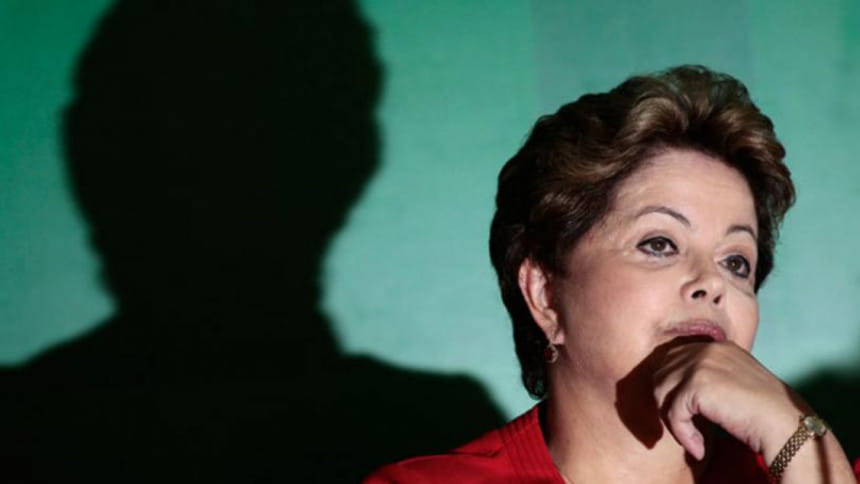Brazil’s cabinet “all white and male”

Brazil's suspended President, Dilma Rousseff, has criticised the new interim government created by her former Vice-President, Michel Temer, for being entirely made up of white male politicians.
It is the first cabinet with no women in Brazil since 1979.
Rousseff said it did not represent the country - one of the world's most ethnically diverse nations.
Her government had seven women among its 31 ministers.
The government's chief-of-staff said they had been unable to find any women for the cabinet.
Eliseu Padilha said the cabinet had been formed on a tight schedule.
"We tried to seek women but for reasons that we don't need to bring up here, we discussed it and it was not possible," he said.
"We will bring women into the government, in posts that used to be ministries, and that now will have the same functions but under a different name."
The new government will be in stark contrast to the administration of Rousseff who had called herself in Portuguese "presidenta" instead of the gender neutral "presidente", and who had spoken of citizens as being "Brazilian women and men."
During the impeachment process she had frequently explained the criticism of herself and the government as being related to her being a woman.
"Black people and women are fundamental if you truly want to construct an inclusive country," Rousseff said on Friday to journalists at the presidential palace, where she will continue to live during her impeachment trial.
"I think the government is clearly showing that it is going to be neo-liberal in the economy and extremely conservative on the social and cultural side."
In his first speech to the nation after the Senate voted to impeach Rousseff, interim President Michel Temer stressed that "economic vitality" was his key task.
He added: "It is essential to rebuild the credibility of the country at home and abroad to attract new investments and get the economy growing again."
He said Brazil was still a poor nation and that he would protect and expand social programmes.
He named a business-friendly cabinet that includes respected former central bank chief Henrique Meirelles as finance minster.
Males identifying as white made up 22% of Brazil's population in 2013 according to the government's economic research institute, IPEA.
Women made up 51% of the population in the same year.
Rousseff told journalists on Friday her opponents had "turned her life inside out" trying to find grounds to impeach her.
She again denied the allegations against her and said she had committed no crime.
She said she would continue to speak out against impeachment proceedings she has denounced as a "farce" and "sabotage".
She now has 20 days to present her first defence before the Senate and the trial can last up to six months.

 For all latest news, follow The Daily Star's Google News channel.
For all latest news, follow The Daily Star's Google News channel. 








Comments